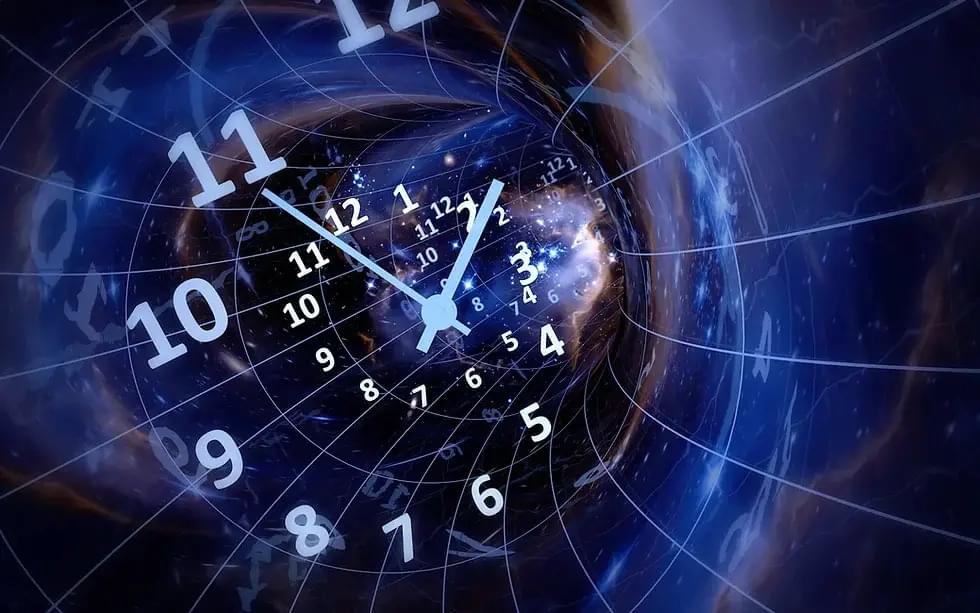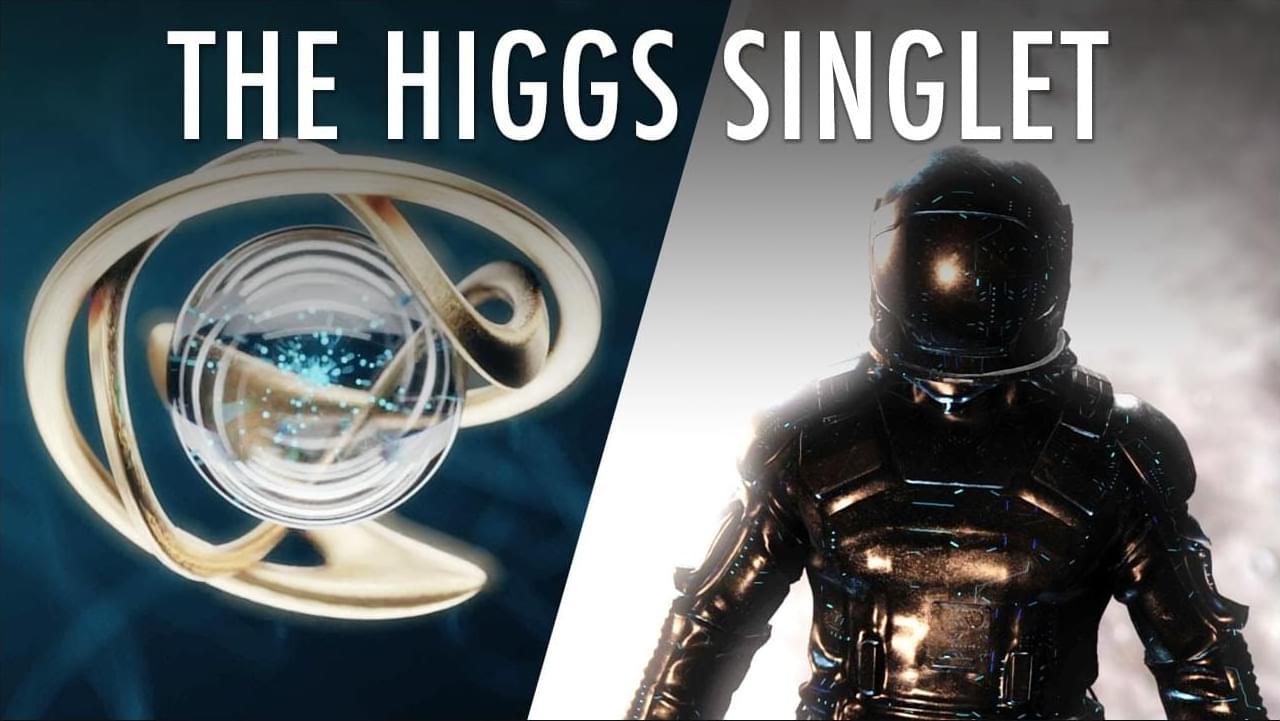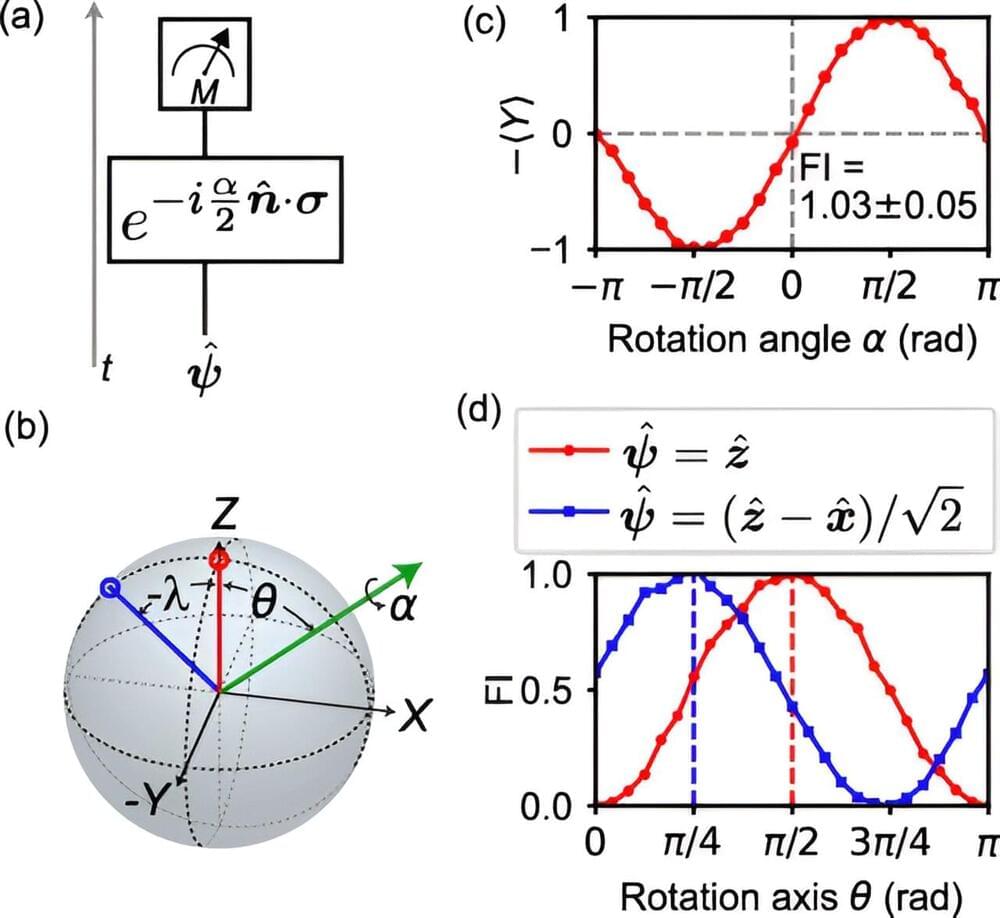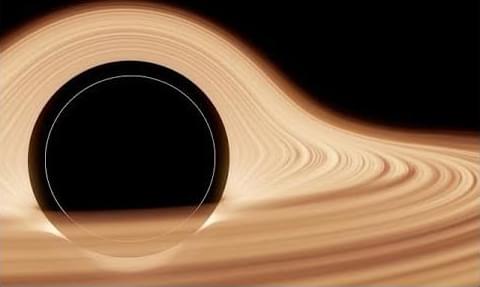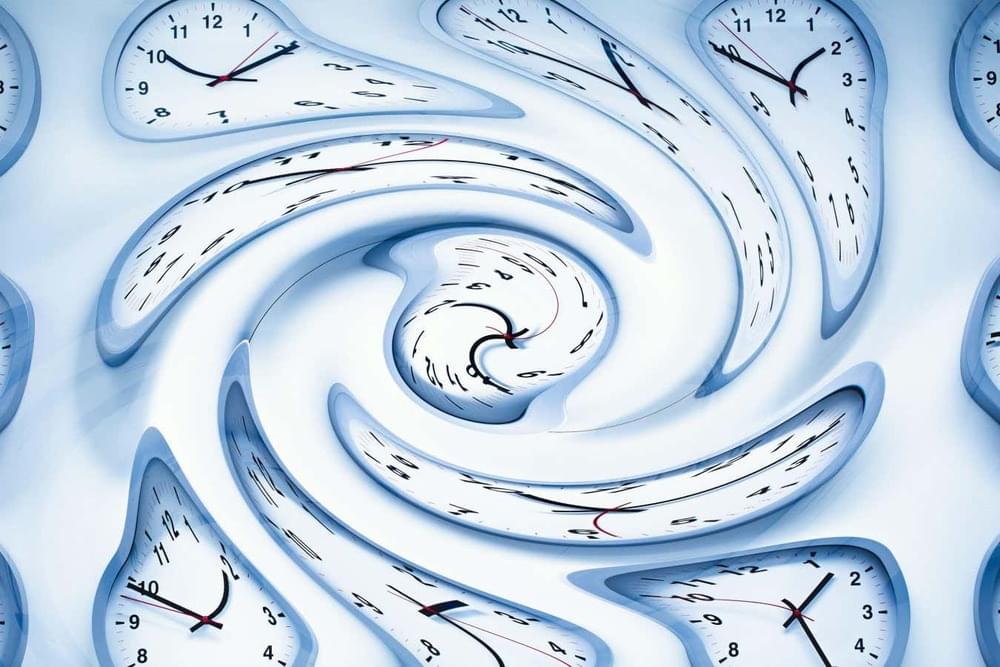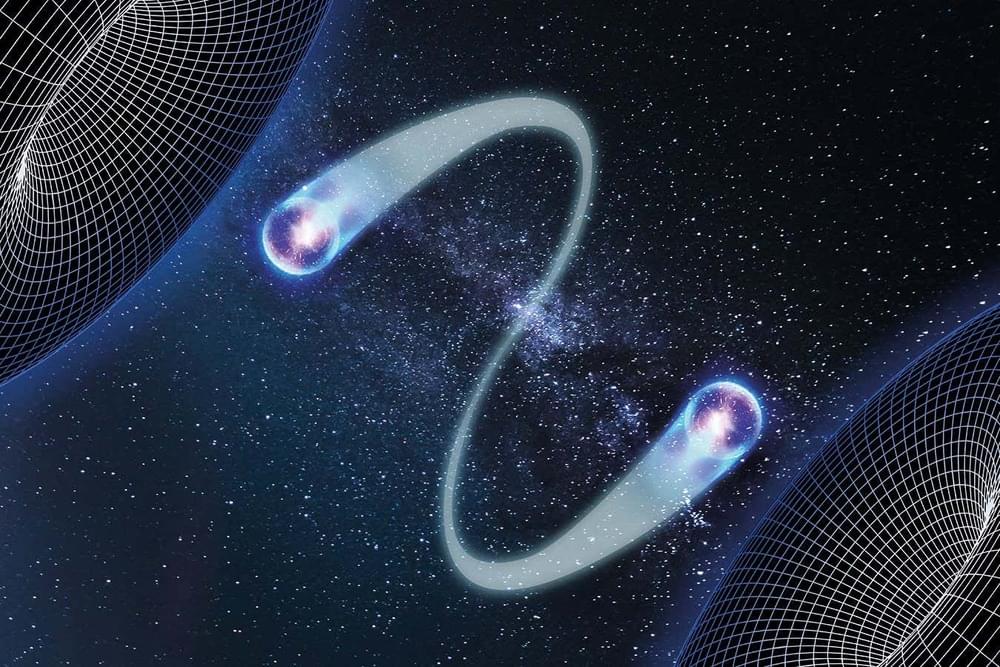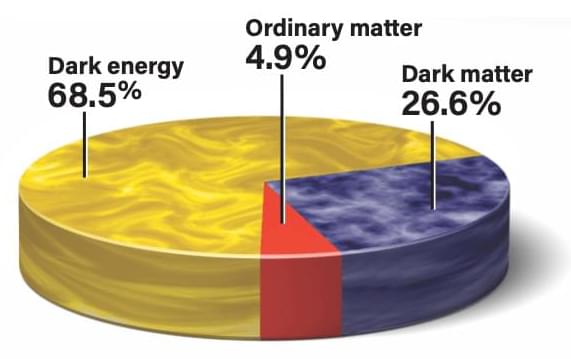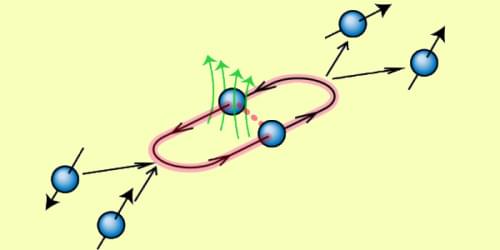
Quantum sensing can outperform classical sensing by placing the sensor in an initial state that optimally measures the target. However, choosing this optimal state requires having some preknowledge, such as knowing the orientation of a magnetic field in order to measure its strength. A new experiment overcomes this limitation using two entangled quantum bits (qubits), which are manipulated in a way that is equivalent to a qubit traveling back in time [1]. Through this “time travel,” the qubits can be placed in an optimal state without any preknowledge.
“Our work addresses a specific kind of problem that plagues many sensing setups: you have to know which direction to point the sensor,” explains Kater Murch from Washington University in St. Louis. When measuring a magnetic field with a spin qubit, for example, the spin’s rotation will return information about the field strength only if you point it in the optimal direction. Point it in a nonoptimal direction and you’ll get zero information about the field, wasting the measurement.
Murch and his colleagues have devised a protocol in which the probe qubit is entangled with a second qubit, called the ancilla. Following previous work, they show that the entanglement is mathematically equivalent to the ancilla traveling back in time to place the probe in an optimal state [2]. They further show that measuring the ancilla and the probe in a particular sequence can recover information about the field strength in all cases—so no measurement data are wasted as they can be in other protocols. The researchers foresee using this entanglement scheme in situations where a field—or another observable—is changing over time.

